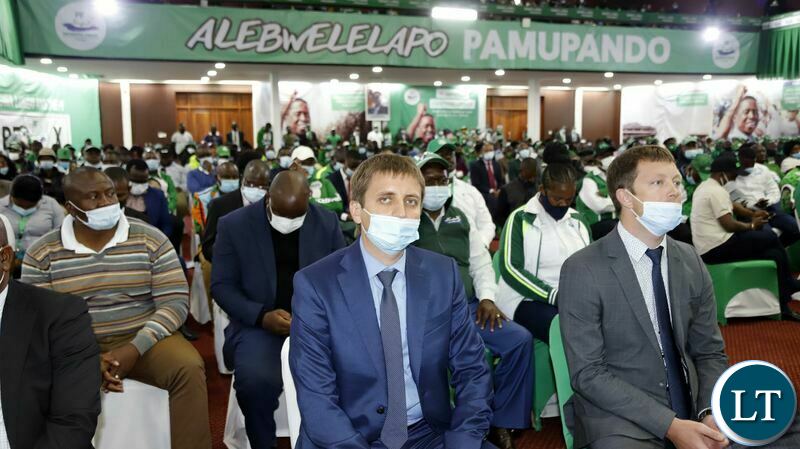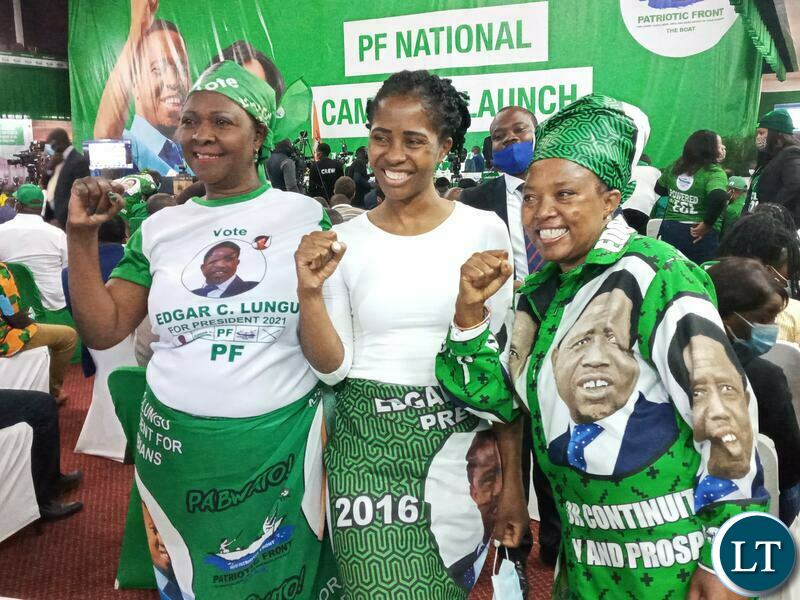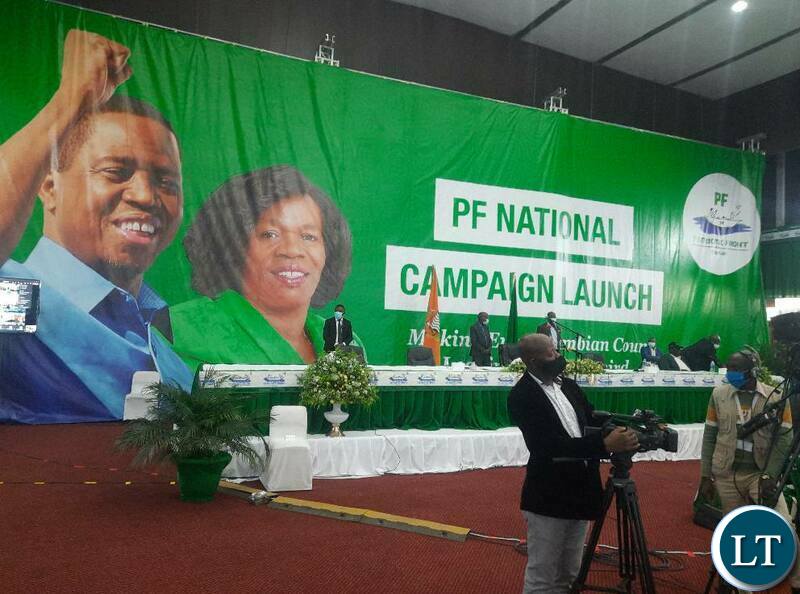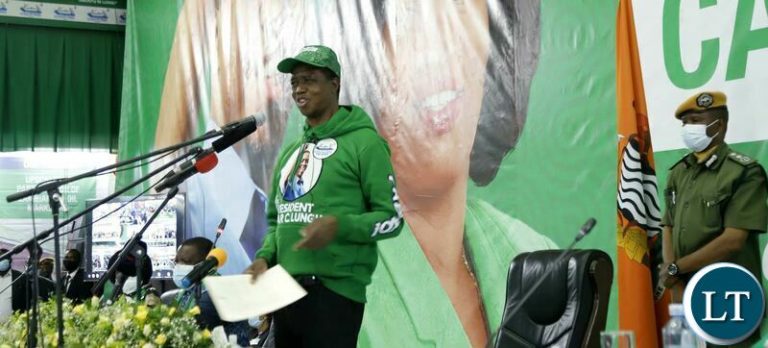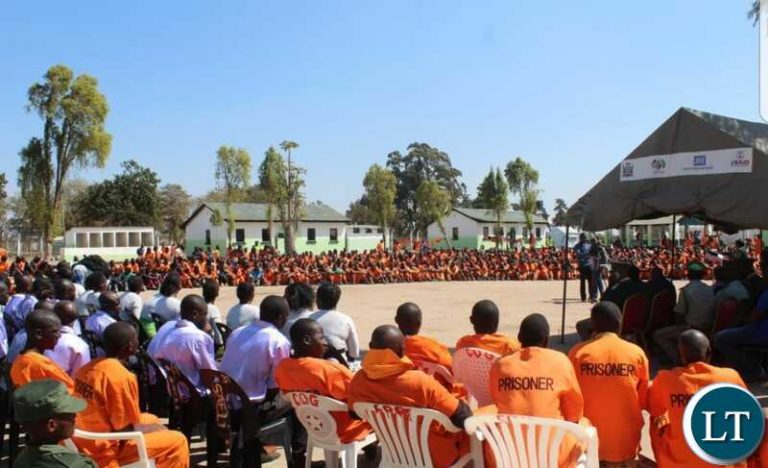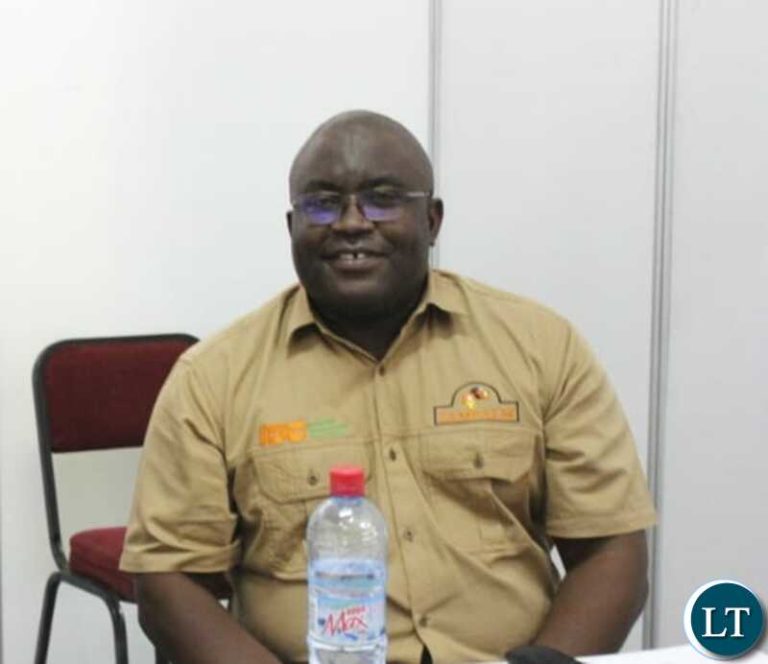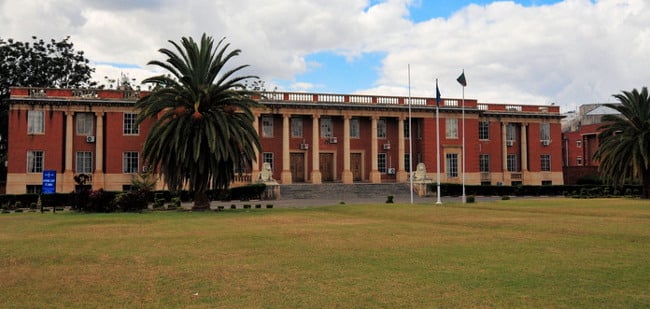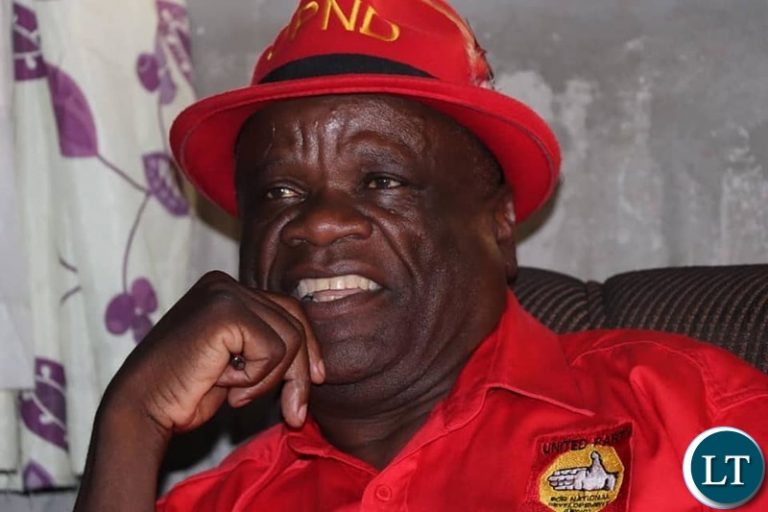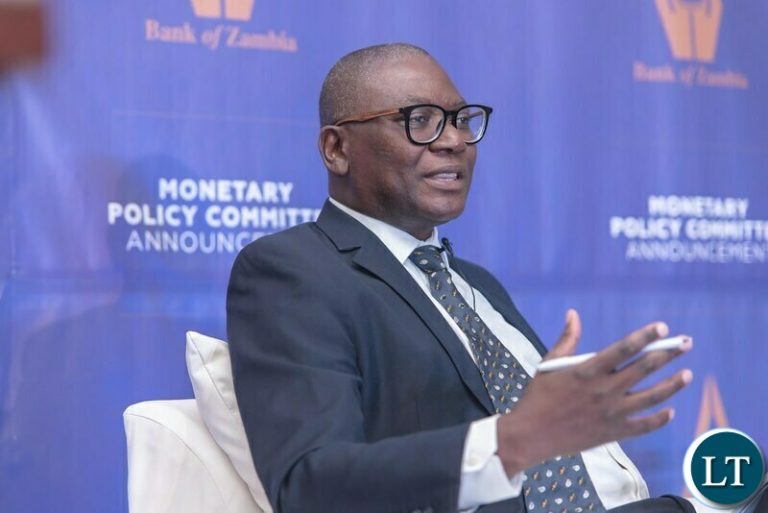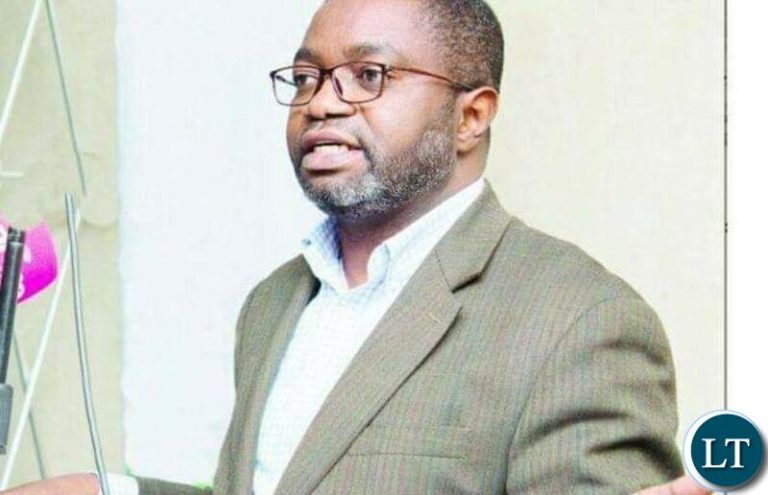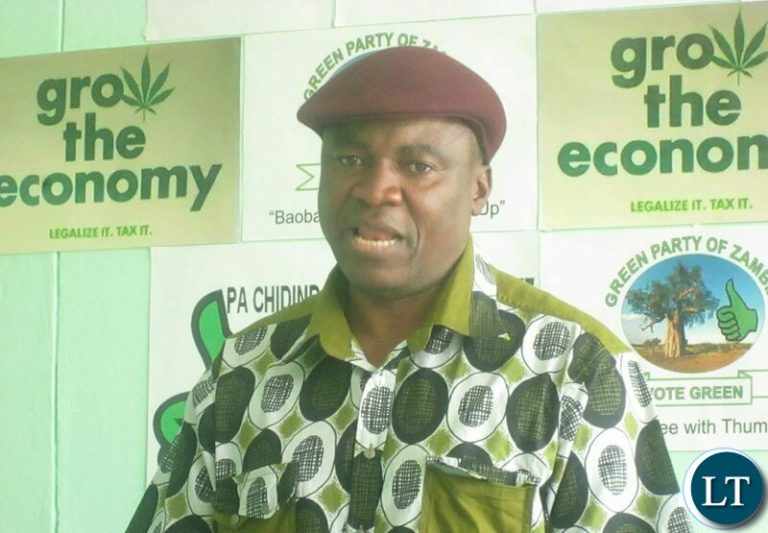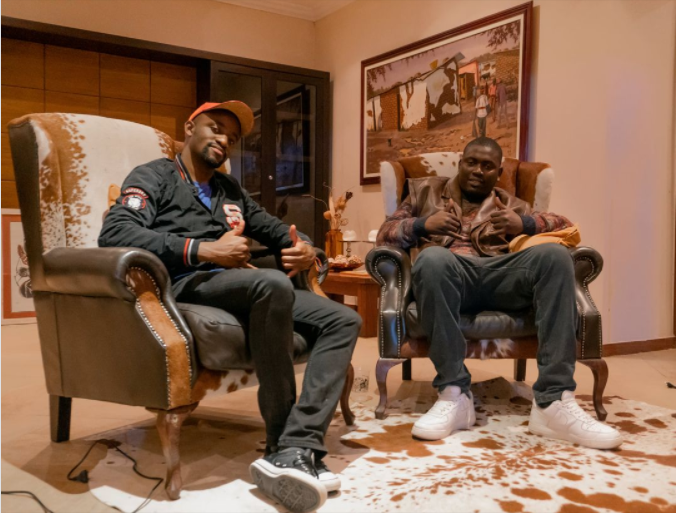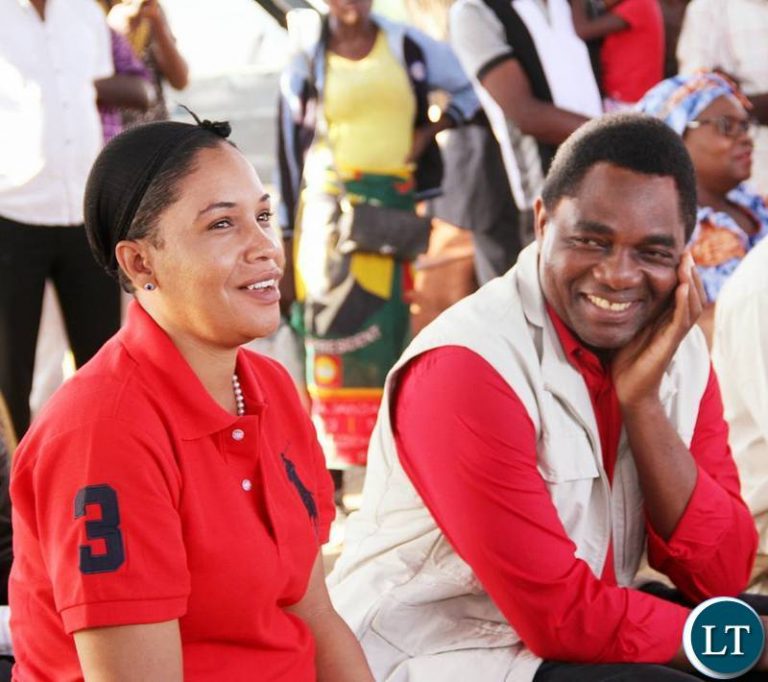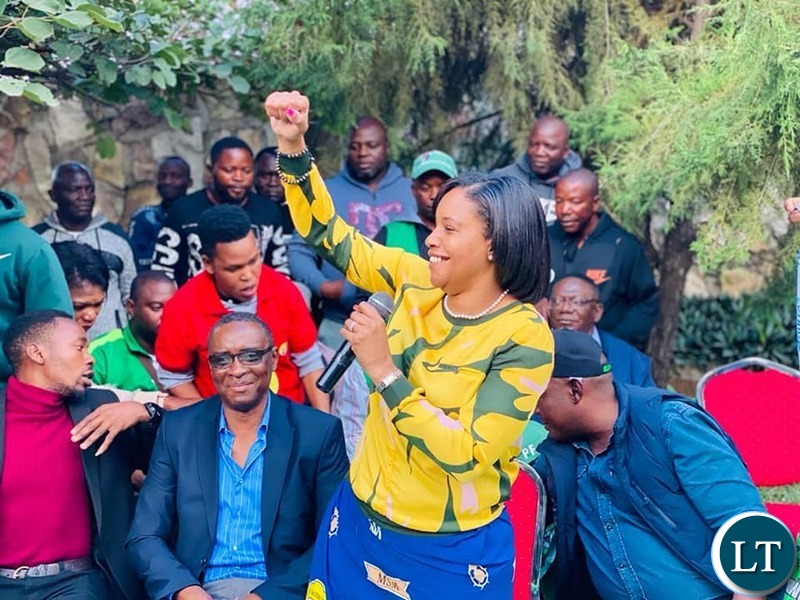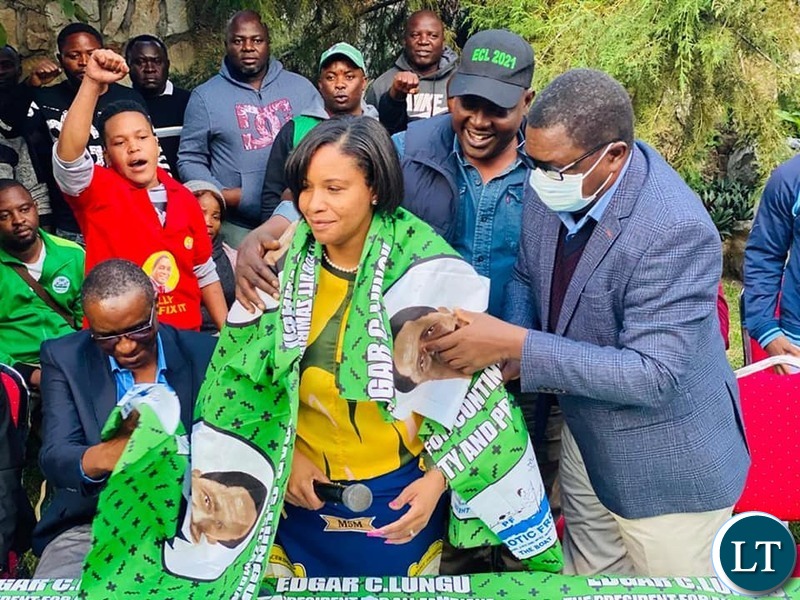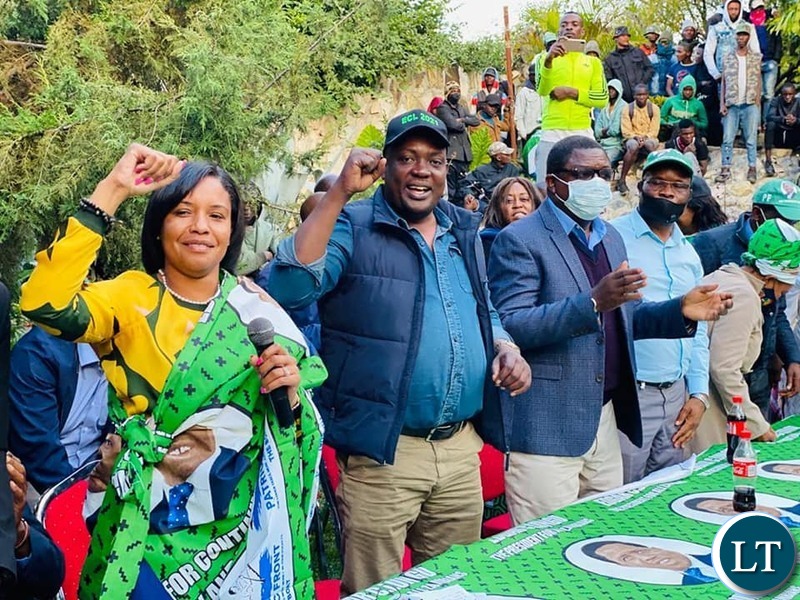President Edgar Lungu has officially launched his campaign seeking re-election in the coming Presidential General elections scheduled for 12th August 2021 with the announcement that the ruling Patriotic Front(PF) will not be holding rallies to protect the lives of the citizens by following the official COVID 19 guidelines but will employ effective campaign strategies.
Citing the fact that the rise in COVID 19 cases in India has been attributed to political rallies as super spreaders, President Lungu urged his opponents to consider following the ruling party’s decision and has since directed law enforcement agencies to take full control by rooting out irresponsible behavior of holding large gatherings.
The Head of State said campaigns will be easy because PF has proof that it has delivered development across Zambia. The Republican President has cautioned against dirty campaigns because PF has a clean record of visible development.
President Lungu said the PF Government has held the good tenets of democracy, rule of law and separation of power and that PF will continue working hard to empower women and the youth adding that a bumper harvest is underway because farming inputs were delivered on time.
President Lungu said the PF Government has protected jobs in the mines and fought for better conditions while Zambia has witnessed investment in the energy sector culminating in reduced loadshedding.
He said the PF Government has invested heavily in infrastructure development which has seen roads, schools, hospitals, houses for men and women in uniform.
The Head of State said the PF Government has further transformed the public broadcaster ZNBC through the construction of new studios and latest equipment.
He said the PF Government has witnessed the emergence of more radio and television stations in the country which is a demonstration that media space has been growing.
President Lungu said the film industry has grown to international levels which has seen artists getting well paid. He said the PF Government has worked well with traditional and church leaders as they are agents of social and economic development.
The Head of State said the PF Government has demonstrated inclusiveness which has resulted in people with disabilities being adopted for Parliamentary positions such as Dr. Thomas Mtonga in Chasefu, Eastern Province.
The President is, however, disappointed that some candidates have attacked Dr. Mtonga that he cannot be voted for because he is visually impaired. He said Dr. Mtonga who is a lecturer at the University of Zambia will be used as an example to motivate others to vie for political leadership.
On health, President Lungu said the PF Government has initiated a government insurance scheme which has benefited many citizens in accessing healthcare services. He said the PF Government has further provided free vaccines to protect the lives of the Zambian people.
President Lungu stressed that the PF Government is not scared of taking measures that might be unpopular but in the best interest of Zambia. The Head of State said the new PF Manifesto is the new convenant with the people of Zambia with a deliberate focus on revamping the economy which has been affected by COVID 19.
He said some businesses have been reserved for Zambians such as mining manganese, gold, timber, saloons, vegetables, among others to reduce importation.
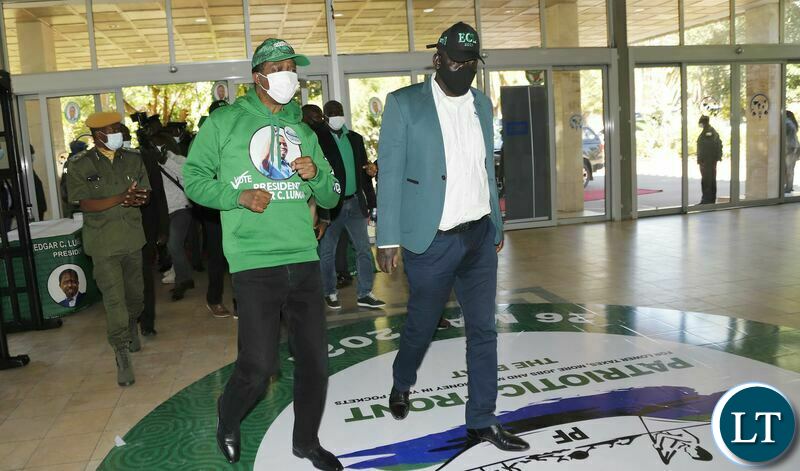
Meanwhile, President Lungu has announced that PF National Chairperson Hon. Samuel Mukupa will be the Presidential Campaign Manager while the Vice Presidential Campaign Manager will be headed by MCC Hon. Given Lubinda. He named Presidential Campaign Coordinators as Hon. Vincent Mwale assisted by Hon. Charles Banda for Eastern Province.
Former Kasama MP Hon. Geoffrey Mwamba will be seconded by Hon. Bwalya Ngandu for Northern Province.
In Central Province, Hon. Jeston Mulando will be in charge assisted by Ambassador Elijah Chisanga. Hon. Mwimba Malama will manage Muchinga Province assisted by Hon. Malozo Sichone and Cathreen Chileshe focusing on Mpika.
Veteran politician Hon. Katele Kalumba (Kaka Wesu) will manage Luapula Province assisted by Wright Mwitwa. Hon. Frank Ng’ambi and Mbachi Nkwazi will be in charge of the Copperbelt while Hon. Davies Chama and Hon. Mumbi Phiri will handle Lusaka.
Hon. Siacheye Madyenkuku and MCC Kebby Mbewe will run Southern Province as Captain (Rtd) Liambela assisted by Peter Kazhila will handle Western Province.
For North Western Province, Hon. Kabinga Pande will be assisted by Mrs. Kutemba Konga.
The Head of State has thanked Zambians for the unflinching support during his first term of office urging them to give him a second term of office.
